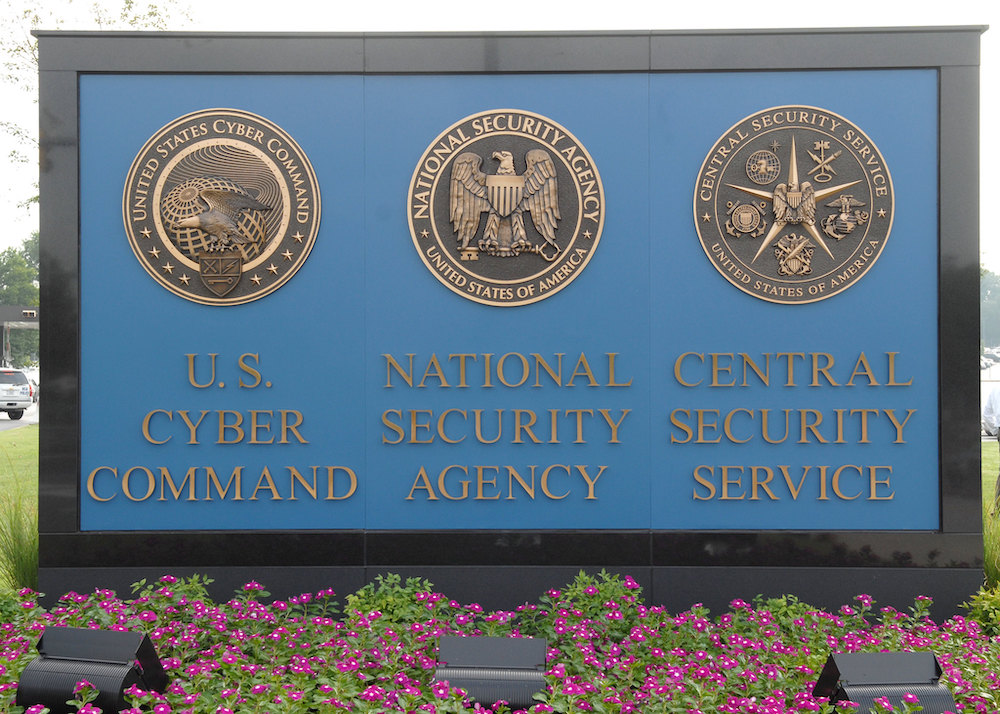Thankfully, support is available for firms seeking business with the base — courtesy of both the Fort Meade Alliance and the government of Anne Arundel County, in which the installation and its constituent centers lie.
That support can be crucial even in what Sarah Horta, the director of innovation and strategic partnerships for the state-affiliated Maryland Economic Development Corporation, called the Free State’s largest employer.
“It generates over $21 billion in economic impact annually,” added Horta, who also had a day-to-day relationship with Fort Meade during her 2017-2022 tenure as the Anne Arundel Economic Development Corporation’s (AAEDC) business development director. In that prior position, Horta led the county’s marketing of cyber, IT and aerospace work. She noted that there are well over 100 government agencies and organizations on the base; some of those, like the U.S. Cyber Command, have direct relevance to sub-industries with tremendous presence in Maryland.
To further emphasize its massive economic capacity, Horta also mentioned that Fort Meade accounts for 41% of the Department of Defense’s (DoD) payroll in Maryland, as well as 6% of the state’s entire gross domestic product.
One company’s contracting journey, through thick and thin
Columbia, Maryland’s Vine Technology Solutions, is now getting just a small taste of that large fiscal pie. Founder and President Donte Lewis started the company, which he described as a digital transformation firm, in 2021 following about 16 years of on-site work at Fort Meade.
Lewis described Vine Technology Solutions as a digital transformation firm, which takes customers from where they are from a technical perspective into their digital future by leveraging the “latest and greatest” technology, business architecture and people. According to its website, the company executes this work with a mix of consulting, managed IT and related software-based services that it offers to both public and private clients.
“We do operations as well,” he explained. “So we’ll take you from where you are, to where you want to be. We’ll do that faster, increase the [return on investment] and give you more value on the mission. Then we’re also a subcontractor; We’ll do the day-to-day maintenance for IT.”
The firm has four subcontracts with base primary contractors — a term for companies that acquire or serve as principals on major contracts before delegating or subcontracting with firms like Lewis’. He said that his own path to contracting with Fort Meade was a challenging one, even with his prior employment on the base. For instance, he explained that to do business with the National Security Agency (NSA) — one of various DoD agencies based out of Fort Meade — a company and at least one of its employees must have top-secret clearance.
“That’s one of the biggest barriers for folks,” Lewis noted. “You can have a company that has business at all the government agencies, but if your company doesn’t have a top-secret security clearance, you’re dead in the water until another company sponsors you. That’s one of the biggest hurdles.”

He said that Vine Technology Solutions cleared that hurdle by leveraging relationships — a process that took over six months and a lot of paperwork.
“We haven’t seen the huge returns yet because we’re still relatively small, but the potential is there,” he said.
Right now, 90% of his often-eight-to-ten-employee company’s business comes from Fort Meade. But, he said, the labor pool for the work available shrank after COVID, with a still-high number of companies vying to attract that now-limited supply of talent.
Lewis said his business strategy going forward will involve diversifying his customer base further beyond the base. He believes that will strengthen his revenue foundation while opening up possible employees to a variety of assignments.
“People want that flexibility,” he said. “You [may] have someone who [says] they’re tired of going over to the fort every day… or just wants to take advantage of other opportunities. The way I look at it is: I’d love to have all those people in-house. If I have all my people at the NSA, I can’t offer that.”
But he wants to grow his contracting within Fort Meade, too. The best part of his job, he said, is working with the different people there. He is thankful for the help he’s getting from the Fort Meade Alliance, an organization with a mission to support the base as well as further fuel its economic engine. Vine Technology Solutions is a member of the alliance, which Lewis said provides resources like assistance finding capital and access to critical business services that help sustain or grow companies.
“The most critical [part] is the networking piece of it,” he said. “They provide either all or some aspect of those things that give you the building blocks to success.”
How Anne Arundel County supports would-be contractors
Having the state’s biggest employer in its own backyard offers a pretty obvious boon to the county housing Fort Meade, said Horta.
“There’s a lot of money to be made,” she said simply.
The county supports multiple programs that can help enhance the base’s economy. Its workforce development program covers up to 50 percent, or up to $1,000 per employee, of the cost to train workers. Many companies took advantage of the program to help get staffers certification in programming languages, such as Python or C++. Those companies provide services such as cloud computing and research and development work, among others, to Fort Meade-connected entities.
Horta said that between 2020 and 2022, the AAEDC granted Anne Arundel County-based companies about $120,000 for employee training.

“A lot of that was also coupled with state dollars,” she added. “They get a forgivable loan from the state and the county’s on the hook for 10% of what the state gives. We give that in the form of the workforce development grant.”
Some companies also took advantage of Anne Arundel’s Next Stage Fund, which Horta described as a 0% interest, no-closing-cost fund that goes directly to small companies of fewer than 100 employees and/or under $5 million in revenue that won their first contract and need to hire employees. The loans can be worth up to $250,000.
“I think we gave away ten loans, and two companies came back a second time for follow-on funding,” she recounted.
But for Horta and others in her field, supporting the Fort Meade mission is not all about the financial bottom line. According to boosters like Horta, whose father was a U.S. Navy veteran, each business working at the base, no matter how small or large, plays a critical role in making its national security-focused mission a success.
“It’s a good space to be in,” she said. “You’re making a difference.”







